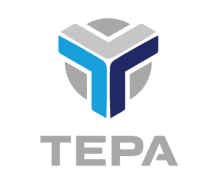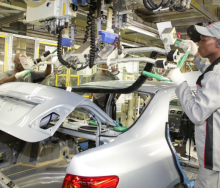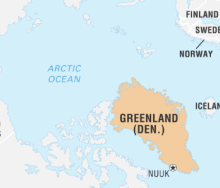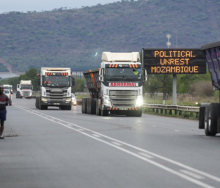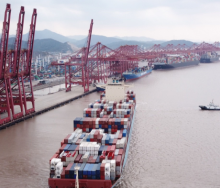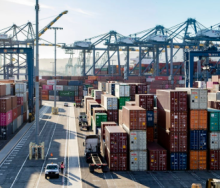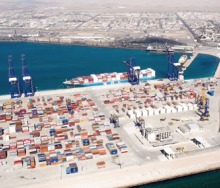The South African Tyre Manufacturers Conference (SATMC) has welcomed its appointment to the government’s Waste Tyre Management Industry Advisory Committee.
The committee, announced by Minister of Forestry, Fisheries, and the Environment, Dion George, will drive the implementation of the waste management plan approved by Cabinet in March.
SATMC announced on Tuesday that its managing executive, Nduduzo Chala, had been appointed vice chairperson, while chairperson of the Tyre Importers Association of South Africa (Tiasa), Charl de Villers, would serve as chairperson.
Chala described the waste plan as a “crucial environmental initiative that deserves the full support of the entire tyre industry value chain to reduce the negative environmental impacts of waste tyres”.
“As the SATMC, we look forward to working closely with all committee representatives and the broader industry to drive forward the objectives of the Waste Tyre Management Plan, which include expanding waste tyre processing capacity, developing monitoring systems, and supporting municipal waste management initiatives,” said Chala.
Other committee representatives include the Retail Motor Industry (RMI); the Tyre, Equipment, Parts Association; Tyre Recycling Industry Association of South Africa; the Recycling Association of South Africa and the Waste Tyre Management Forum, as well as the Black Business Council, Business Unity South Africa; Minerals Council South Africa, the Department of Science and Innovation; and Department of Trade, Industry and Competition.
Globally, an estimated one billion tyres reach the end of their useful life every year. Waste tyre management has been a significant bottleneck for the South African tyre industry until now.
Challenges included the annual inflow of waste tyres exceeding the current processing capacity, resulting in over-full depots and backlogs at tyre dealers. These not only cause logistical issues but also pose a high fire risk.
Chala said the plan included the establishment of three dedicated waste tyre management regions nationwide. The first region covers the Northern, Eastern, and Western Cape and southern Free State. Region two includes KwaZulu Natal, Mpumalanga and Limpopo, while region three encompasses Gauteng, North-West Province and the northern Free State.
Chala said the SATMC was currently identifying opportunities for repurposing waste tyres.
“We are currently on a research and fact-finding mission to explore potential uses for waste tyre products. This is part of a broader strategy to integrate waste tyres into the economy sustainably,” he said.
“What we would like to see is for these waste products to be converted into usable material, for example, tyre crumb used in road infrastructure or waste tyres used in the construction of schools and other social projects.”
Another initiative is the tyre mutilation initiative, which ensures that dealers mutilate tyres correctly to prevent them from re-entering the market. The SATMC developed a standard for this process, which includes guidelines for dealers to ensure compliance.
"Prior to the finalisation of the plan, the SATMC had long been advocating for a process that would cater for the processing of end-of-life tyres. We continue working closely with Tiasa, TEPA, the Waste Management Bureau, and the government to ensure that steps are taken to drive improvements and sustainability in both collection and processing of tyre waste.”
Chala added that there was a need to improve the regulation of part-worn or second-hand tyres, which continued to pose safety risks.
“We urge the government to prioritise the regulation of second-hand tyres as part of its overall road safety strategy. This will help to prevent the sale of unsafe tyres and protect the lives of South African motorists.”
Chala said the SATMC’s technical committee would conduct a fresh study to investigate the prevalence of illegal second-hand tyres in the market. Its earlier research in 2020 suggested that 63% of tyres sampled were deemed illegal, and the organisation estimated that there were now between one million and 1.5 million illegal tyres circulating in the country.

